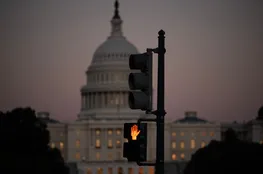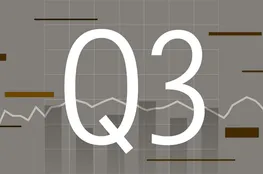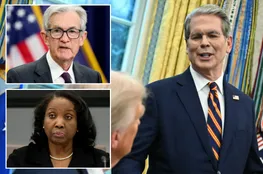Small businesses are increasingly reporting significant pain caused by U.S. tariffs, according to a new Goldman Sachs survey. The study reveals a growing sense of pressure among small business owners, exacerbated by existing difficulties in securing funding due to policy uncertainty. A striking 36% of surveyed small businesses currently feel negatively impacted by tariffs, while an additional 38% anticipate adverse effects in the future. The survey, conducted by Goldman Sachs’ 10,000 Small Businesses Voices initiative, highlights a key attribution: 77% of impacted or anticipating businesses attribute their concerns directly to President Trump’s tariff policies. This ongoing trade dispute has led to a universal 10% tariff on most imported goods and a 30% tariff on China, alongside 25% tariffs on automobiles and car parts, and a 50% levy on steel. Jessica Johnson-Cope, CEO of Bronx-based private security firm Johnson Security Bureau, offers a firsthand example. Her third-generation business, which provides services on construction sites – a sector acutely sensitive to trade policy – anticipates increased uniform costs due to imported sourcing. Furthermore, a new armored truck purchase, budgeted at $150,000 last year, is now projected to cost approximately $200,000 due to tariff-driven price increases. Johnson-Cope’s experience underscores the broader impact: ‘Some of our construction customers are postponing pending projects until there is a greater level of certainty around the tariffs,’ she stated.
The survey reveals a compounding issue: 81% of small businesses seeking loans or credit lines in the past year encountered difficulty securing affordable financing. High interest rates have resulted in 49% of small businesses halting expansions and 41% restricting new business endeavors. Johnson-Cope recounts a personal challenge: ‘Several years ago, a slow-paying client nearly bankrupted us. Without access to affordable capital, we had to take out a high-interest loan just to stay afloat.’ This struggle is compounded by the perception that the federal tax code favors large corporations, with 82% of small business owners believing this to be the case. Business owners emphasize the need for straightforward, predictable policies, arguing that ‘when the tax code is overly complex or constantly changing, it makes long-term planning difficult.’
Despite these considerable obstacles, optimism remains: 75% of small businesses express a positive outlook, and 72% forecast growth in 2025. Many are embracing artificial intelligence to improve efficiency, although 42% lack the resources and expertise for successful implementation. Johnson-Cope stresses that addressing tariffs, capital access, and tax simplicity are crucial. ‘Small businesses are the engine of the American economy. We are job creators, innovators, and the heartbeat of our communities — we deserve for our voices to be heard, not just as a one-off for a single piece of legislation, but day in and day out as policymakers craft ideas that can limit or expand our chance to grow,’ she concludes. The Post is seeking comment from the White House.
























